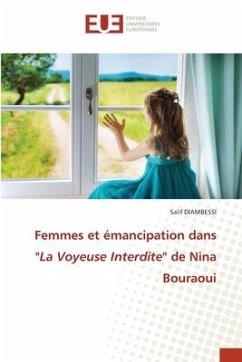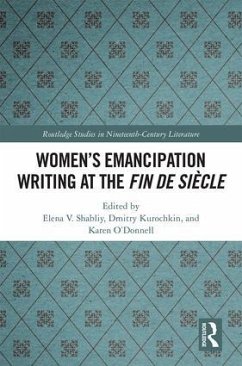
Women and emancipation in The Forbidden Traveler by Nina Bouraoui
Versandkostenfrei!
Versandfertig in 6-10 Tagen
40,99 €
inkl. MwSt.

PAYBACK Punkte
20 °P sammeln!
In the 1970s, Algerians had resolved to break with the values of the former French occupation, among others, the equality of the sexes, to express their nationalism by returning to the source, that is to say, to the tradition and religious principles that confer authority on men, imposing submission on women, and the confinement inside the house which, since then, have become cultural facts. Nina Bouraoui, a French-Algerian author who spent part of her adolescence in Algeria, lifts the veil on this reality through her novel La voyeuse interdite. Thus, this book, through the sociocriticism and ...
In the 1970s, Algerians had resolved to break with the values of the former French occupation, among others, the equality of the sexes, to express their nationalism by returning to the source, that is to say, to the tradition and religious principles that confer authority on men, imposing submission on women, and the confinement inside the house which, since then, have become cultural facts. Nina Bouraoui, a French-Algerian author who spent part of her adolescence in Algeria, lifts the veil on this reality through her novel La voyeuse interdite. Thus, this book, through the sociocriticism and stylistics as methods of analysis, aims to study the scriptural processes used by Nina Bouraoui to pass his message, especially as it breaks all the taboos related to the codes of propriety by the desacralization of the female body, and even by the adoption of a violent language. Also, this book wants to identify the issues and ideology to which Nina Bouraoui adheres through The Forbidden Peeping Tom, her first novel.












